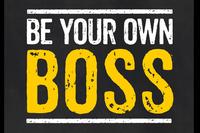Vacation: Time to kick back, relax, soak up the sun -- and go on a few job interviews? That's right. If the last day of your vacation finds you dreading Monday back at work, consider using your next vacation to find a new job.
Why Blow Your Vacation Job Hunting?
You're caught in a tough situation. You want out of your current job, but you also want to enjoy your vacation. Here are some reasons your vacation may be the best time to search:
- When you're on vacation, you are more readily available to meet with prospective employers any day of the week, at any time. You don't have to squeeze an important interview into your lunch hour.
- You won't raise eyebrows when you show up to work in a suit, versus your usual jeans or khakis -- if your office dress code is casual.
- You won't have to feign illness, sick kids, deaths in the family or other reasons for taking a day off to interview.
- A week or two can give you enough time to really dedicate yourself to a thorough job search. Rather than cramming this important process into the rest of your busy life, you can totally focus on this one priority.
The Disadvantages
Sorry, there really is no downside to using your vacation to find a new job -- except in your perception. You won't have this hard-earned time off again for a while. If you don't feel you've gained anything as a result, you may regret using your time this way.
How to Vacation Like You Mean It
According to Stephen Viscusi, host of the nationally syndicated radio show "On the Job" and author of "On the Job: How to Make It in the Real World of Work," to return from vacation with a job offer, you'll need to:
- Treat each day like a workday. Get up at your usual time and be productive at your job search all day. Don't get into a vacation mindset; you're on the job.
- Send out resumes to prospective employers 4-6 weeks before your vacation. You want to have actual interviews during your time off -- not be doing the legwork -- so make sure you've taken care of this early.
- Let interviewers know you are using your vacation specifically to find another position and give them the dates you are available to meet. This demonstrates two things to a prospective employer: Your serious approach to your career and the respect you show your current employer by not conducting your job search on company time.
- Pound the pavement. Maximize this time off by meeting with as many employers, recruiters and networking contacts as you possibly can.
Resigning Without Ethical Baggage
If your hard work while on vacation leads to a job offer, congratulations. How do you tell the boss you're quitting? "Giving your resignation after returning from a vacation isn't any different from resigning at any other time," Viscusi said. Just be professional and follow the same protocol as you would with any resignation.
Remember: You earned your vacation time. It is part of the reward for having worked hard all year. Whether you want to give two weeks' notice is a personal decision. Now that your future lies with your new job, your decisions must be based on when your responsibilities begin there.
The best possible souvenir you can bring back from vacation is a new job. Instead of going for a change of scenery for a week or two, go for a change of employers.
Want to Know More About the Military?
Be sure to get the latest news about the U.S. military, as well as critical info about how to join and all the benefits of service. Subscribe to Military.com and receive customized updates delivered straight to your inbox.











